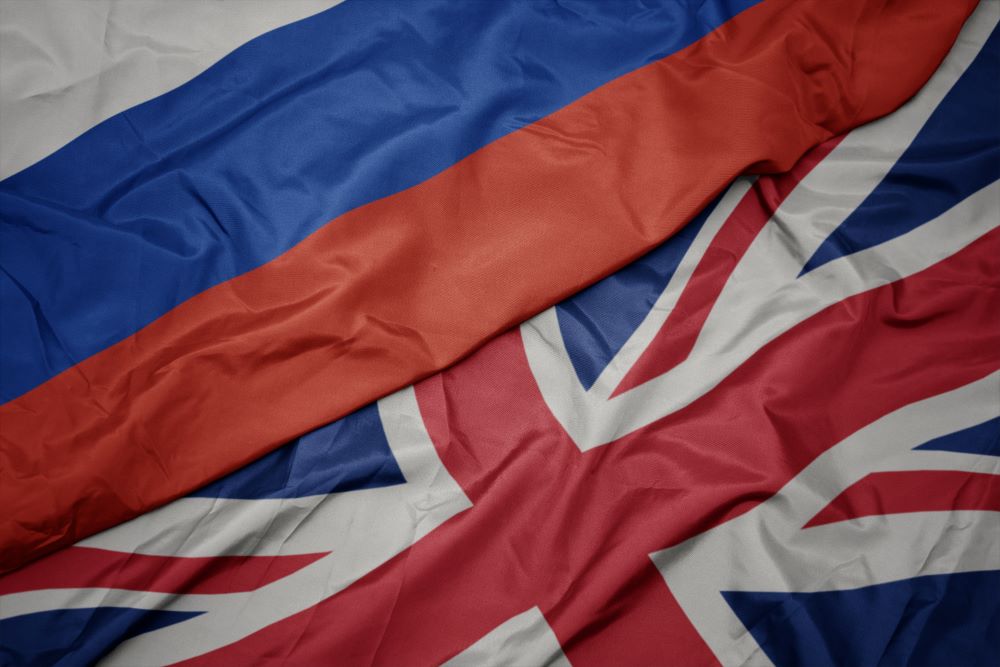
British manufacturers are continuing to supply Russia with industrial equipment despite the wide range of trade sanctions and export controls that were introduced by the government following the start of the war in Ukraine, new trade data analysis shows.
Data acquired and analysed by the Times and investigative firm Data Desk shows UK companies have continued to export equipment that is used in Russia’s strategically important fossil fuels and mining industries.
The analysis follows a paper from the Yale School of Management, published last week, showing that a number of household brands are continuing to operate in Russia, including Unilever, Nestle and Heineken.
Continuing supply
The Times report cites a number of businesses shown to be continuing to supply to Russia key components such as pipe supports, rubber oil hoses and electronic devices used in the metallurgical industry.
The companies have either declined to comment on the data or have said that they don’t have direct links with Russian.
A spokesperson for the Department for Business and Trade told the Times that it succeeded in drastically reducing the number of goods being exported to Russia from the UK.
‘Be diligent’
Ray Burgin, an education delivery team lead at the Institute of Export & International Trade (IOE&IT), told the IOE&IT Daily Update that the report is an important reminder to businesses that they need to “be diligent” when ensuring their exports don’t inadvertently end up in Russia.
“The restrictions introduced by the UK, EU and US, among others, have largely succeeded in restricting the supply of key products and parts into Russia.”
“However, businesses need to continue to be diligent to ensure their exports aren’t being moved through third party countries into Russia. Businesses should ensure they have processes in place to monitor and review the end-users and end-use of their products.”
“There needs to be a strong focus on monitoring activities that could be deemed as circumvention, whereby there could be a risk for businesses providing goods and services indirectly.
“It is crucial to remain diligent and ensure there is no perceived diversion and transfer of intangibles, such as technology, software and technical information or support, as these can inadvertently be provided via other means.”
Burgin advised affected businesses to consider joining the IOE&IT’s Export Controls Special Interest Group to ensure they receive regular updates and advice on best practice relating to sanctions compliance.
Staying put
Although several businesses ceased operations and withdrew from Russia following its invasion of Ukraine, others have been less able to reduce their trade with the belligerent country.
A study by the Yale School of Management recently found that several world-renowned brands – such as WeWork, Heineken, Unilever and Nestle – are still doing some form of trade within or with Russia.
“The overwhelming majority of the 1,000-plus global companies have kept their promises to exit Russia,” said Jefferey Sonnenfeld and Steven Tian from the Yale School of Management in Investment Monitor.
“We are disappointed that at least 16 companies have seemingly reneged on their initial promises to leave,” they add.
'Not straightforward'
The BBC reports that Unilever recently admitted that it would be complying with Russian conscription law, attracting criticism from campaign groups.
In a letter to the B4Ukraine group, the consumer goods giant said it "absolutely condemns the war in Ukraine as a brutal, senseless act by the Russian state" but that it also complies with “all the laws of the countries we operate in".
The firm largely continues to sell personal care and hygiene products in Russia. It said withdrawing from Russia would not be “straightforward” as it could potentially be “appropriated and then operated" by Moscow.
Unilever’s chief executive, Hein Schumacher, told the Times that continuing to operate in Russia was the “least bad” option.



